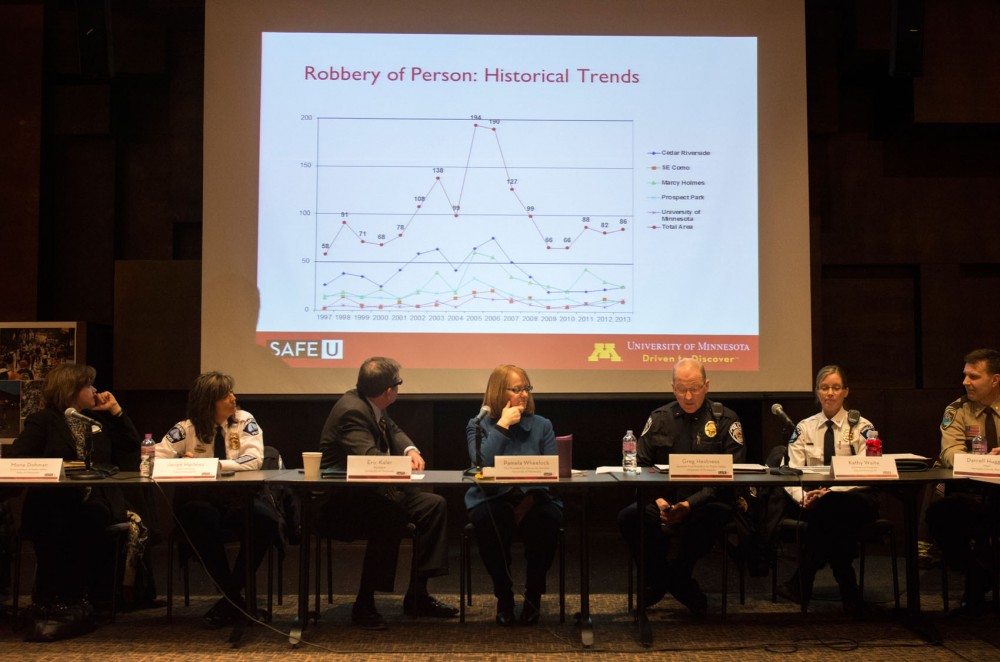In the wake of an uptick in violent crime on and near the University of Minnesota campus, administrators, state and community officials and student leaders are piecing together ways to improve campus safety.
One thing they agree on: Students need to get more involved in the discussion.
About 60 people gathered in the McNamara Alumni Center Tuesday to talk campus safety, a discussion that included brainstorming ways to make sure students have their voices heard.
The first step may simply be increased awareness, officials said.
Laurie McLaughlin, director of Housing and Residential Life, said students should understand they are
susceptible to crime.
“We don’t want to create a culture of fear,” she said, but she added that sometimes students think, “It’s not going to be me.”
Administrators said that during orientation and Welcome Week — and even as early as new-student recruitment — the University should talk to students about how to live safely in the metro area.
“Crime does exist,” said Danita Brown Young, vice provost for student affairs and dean of students.
For students who come to the University from rural areas where crime is less common, the transition to an urban campus can be tough, said Minnesota Student Association President Mike Schmit.
And overall, he said, it can be difficult to communicate to students the importance of being aware of their surroundings at all times of the day.
Some crimes included in University police crime alerts in fall semester happened during daylight hours, including robberies at Anderson Hall and the Carlson School of Management on the University’s West Bank.
In addition to efforts to draw students into the crime discussion, officials also brought up ways for students to take a more proactive approach.
Brown Young and Rep. Phyllis Kahn, DFL-Minneapolis, both brought up the importance of students getting involved in their neighborhoods. Suggestions included becoming block leaders or joining neighborhood associations.
Low student involvement in University-area neighborhoods — in particular, their minimal participation in local neighborhood associations — is an ongoing issue.
Legislative efforts
State legislators are looking to pursue public safety initiatives in the upcoming legislative session.
Kahn said she wants to consider subsidizing rent for police officers — an idea raised by one of her constituents. Even if officers don’t do anything, Kahn said, their presence could deter
criminals.
Sen. Kari Dziedzic, DFL-Minneapolis, said some legislators are supporting the “kill switch” bill, which would allow people to permanently disable their phones if they get stolen.
Members of the House are also working on bills to require identification for cellphone vendors, she said, which would make it more difficult for thieves to sell stolen phones.
Working with leaders from around the state on safety was an important opportunity, University President Eric Kaler said.
“We enjoy very much the chance to collaborate,” he said.


